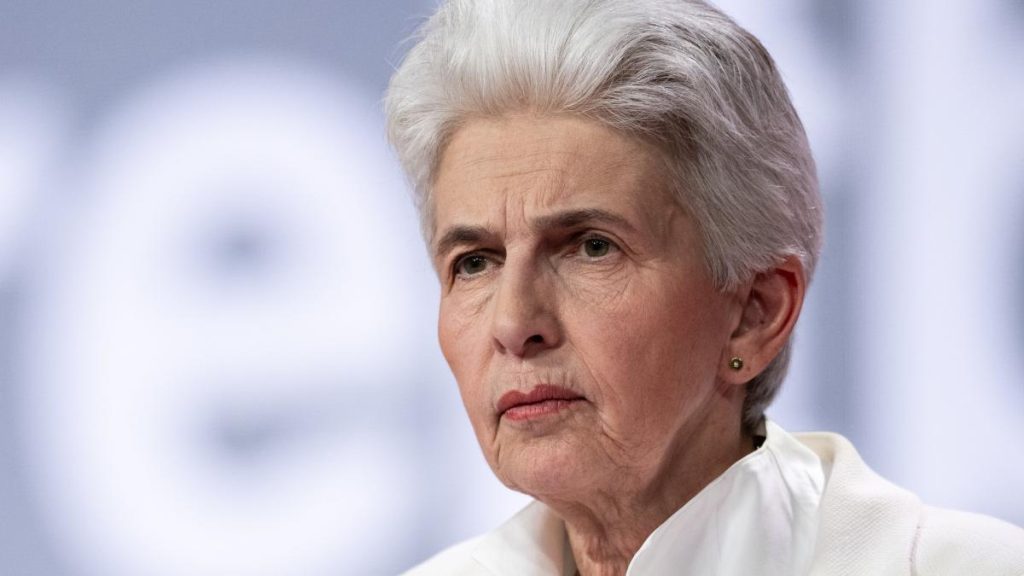The FDP politician Marie-Agnes Strack-Zimmermann’s comments about Chancellor Olaf Scholz have sparked controversy. SPD leader Lars Klingbeil criticized her remarks about the alleged “autistic traits” of the Chancellor and called for an apology. Klingbeil described her comments as a “verbal slip” and stated that if Strack-Zimmermann has any decency, she should apologize to the Chancellor. He emphasized the importance of maintaining a fair European election campaign among democratic parties and expects the FDP’s lead candidate to uphold these standards. The Deputy SPD faction leader Dirk Wiese also condemned Strack-Zimmermann’s comments as disrespectful and unworthy. Strack-Zimmermann had previously described Chancellor Scholz as a “stubborn know-it-all” with “almost autistic traits” in an interview.
SPD lead candidate for the European elections, Katarina Barley, expressed her concern over the deteriorating tone of the political debate, with personal attacks and pathologizing of political opponents becoming more common. She criticized Strack-Zimmermann’s comments as crossing a line in democratic competition and noted the loss of moderation and balance in the discussion. Barley praised Chancellor Scholz for his thoughtful decision-making and calm demeanor in navigating the country through various crises. She highlighted his ability to consider before deciding and then act prudently. Barley acknowledged the Chancellor’s leadership qualities in handling challenging situations.
Just before her planned move to the European Parliament, FDP politician Marie-Agnes Strack-Zimmermann had strongly criticized Chancellor Scholz, accusing him of having “almost autistic traits” and being a stubborn individual who cannot explain his actions to the public. She pointed out his lack of social connections in politics and his refusal to listen to others due to his stubborn nature. Strack-Zimmermann’s comments have drawn attention to the increasingly aggressive tone in political discourse and the personal attacks that have become commonplace. Her remarks have sparked a debate on the boundaries of acceptable criticism in politics and the need for respectful dialogue among political opponents.
The confrontation between the FDP politician and the Chancellor has heightened tensions in the lead-up to the European elections, with parties engaging in heated exchanges and personal attacks. The call for an apology from Strack-Zimmermann by SPD leader Lars Klingbeil reflects the growing concern over the deteriorating quality of political discourse and the need for civility and respect in public debate. The controversy surrounding Strack-Zimmermann’s comments underscores the challenges of maintaining a fair and respectful electoral campaign in an increasingly polarized political environment. Despite the differences between parties and candidates, the focus on policies and constructive dialogue remains essential to democratic processes.














